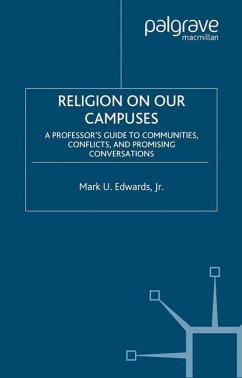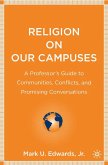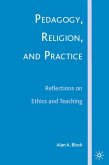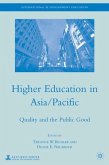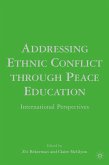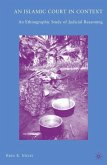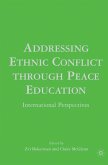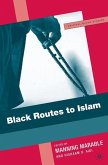What is the appropriate role of religion in scholarship and teaching? Covering topics ranging from religious influences in faculty lives to questions of academic freedom, proselytization, and appropriate limits to religious expression within the Academy, this book seeks to promote faculty self-awareness and encourage dialogue with colleagues.
"A compelling and unblinking look at some of our most contentious issues." - James Carroll, author of the bestselling Constantine's Sword: The Church and the Jews - A History"A first-rate Reformation historian and past president of a prestigious liberal arts college, Mark Edwards has written a very much needed book that makes a sophisticated and persuasive case why academics should take the study of religion seriously. Edwards respects the integrity of the disciplines, the achievements of the Enlightenment and importance of academic freedom - both for faculty and students. At the same time, he invites faculty to consider how the study and discussion of religion in the secular academy can be not only appropriate, but also deepen understanding without proselytizing or special pleading.' - James L. Heft,James L. Heft, Alton Brooks Professor of Religion and President of the Institute for Advanced Catholic Studies, USC.'Mark Edwards has given us the best discussion yet dealing with the complex questions of linking religious commitment to academic-scholarly pursuits. He has much wisdom to impart both to those who think the connections come easily and those who are convinced that they should not even be attempted. No future discussion of the topic will be adequate if it does not make reference to this important book.' - Richard J. Mouw, President and Professor of Christian Philosophy, Fuller Theological Seminary

